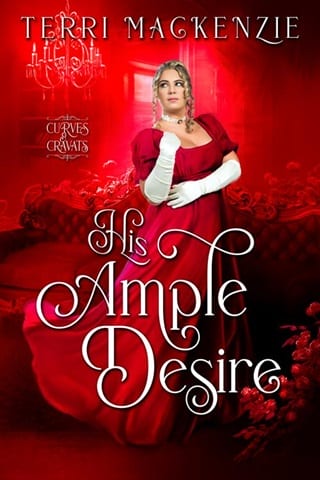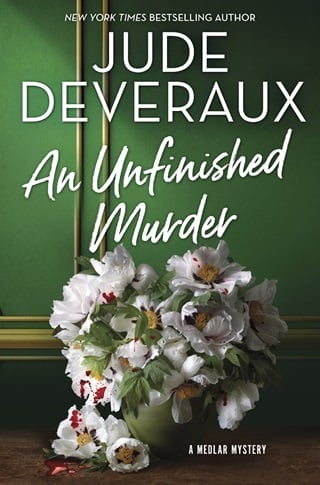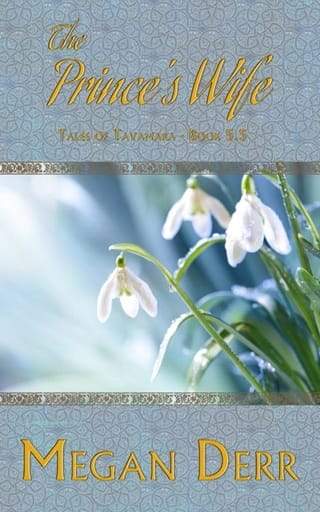Epilogue
March 1816
Jacqueline propped her hands on her chin, ignoring the rattling that travelled from the side of the carriage, up the elbow she leant against it, and into the bones of her head. This was the first time she had come to London, and she didn't want to miss a second of it. The noise, the smells, the buildings that all rose so tall about her.
Mrs Smith hadn't wanted her travelling alone, and had thought about refusing to send her at all, but Lord and Lady Worthington had sent a manservant and carriage all the way out to Suffolk, so it was not for them to refuse.
Jacqueline was glad. She'd dreamt of coming to the capital at some point in her life, and although it was a shame dearest Olivia, her sister, could not come with her, she could still hardly contain her excitement. She'd always felt as though the life she had been born into was too small, and now she was finally getting a chance to experience something different. Admittedly, flirting with the curate had been a fun way of passing the time, and she did adore her family, but there were more important things than haggling for the price of fish on market days, or darning socks by the light of an indifferent candle.
London was the place adventures happened. Her veins were fairly fizzing with it.
As they passed through the outskirts of London, they came across even larger houses. There were gated parks and shops selling all things. It was fascinating. And the people! Jacqueline had never seen so many people in one place in her life. Tradesmen with their wares; ladies lifting their skirts over puddles; skinny children dressed in rags, slipping through the crowds with their quick hands.
Then, as they reached the heart of London, it became ladies with heavily embroidered shawls and liveried footmen with packages, and so many carriages it was a struggle for Jacqueline's groom to navigate the busy streets.
Finally, they came to a street—she did not know which, they all looked the same to her—lined by tall, pale houses with too many windows and black railings leading up to the front door.
So this was where she was to be staying.
She'd known that Lord and Lady Worthington were wealthy, but she hadn't known the extent of it. The building went on for what felt like miles on either side. And there was nothing green to be seen: no garden with buzzing bees and gradually unfurling flowers. There was nothing here but exquisite stonework and a certain sense of grandiose that made her feel as though she had left the country a long way behind.
Briefly, nerves overcame her excitement, but then a footman was emerging from the front door and letting down the steps of her carriage, and when she glanced up, it was to see Lady Worthington herself in the doorway. Instead of the austere lady she had been envisaging—Mrs Smith had said not to expect anything from her; the nobility were notoriously fickle—she was beaming, dressed in a becoming green dress that hugged her curves, and her blonde hair set stylishly below a hat with a long feather.
"Darling," she said, coming down the steps to greet Jacqueline. "I'm so glad you made it safe and unharmed." She peered into the carriage's interior. "Have you no maid?"
"Mrs Smith said she could not spare Nancy," Jacqueline said, unsure whether this was a faux pas immediately on meeting her host. But although Lady Worthington's face briefly seemed to tighten, her expression soon dissolved into another smile.
"Never mind that—you can use my maid until we find you one. Now come inside, darling. You must meet George."
"George?"
"Lord Worthington." Lady Worthington hesitated as she led Jacqueline into the elegant hallway. "You mustn't stand on ceremony with us, you know. I'm Caroline to all my friends, and I'm determined we'll be friends. Ah," she said as a tall man approached. He was handsome in a careless way that Jacqueline knew from novels denoted someone was high fashion, and he gave Lady Worthington such a look of speaking devotion that it was plain their marriage had been a love match.
Jacqueline felt a slight pang deep in her chest. Not jealousy, precisely, but because she wanted to have that one day. Olivia was in love with the butcher's assistant, but Mrs Smith was insisting on taking her to London to find a better match. Olivia wanted nothing else than to stay home and marry, but the butcher's boy wasn't good enough for her. At least, according to Mrs Smith.
"This is George," Lady Worthington said, laying a hand on the man's arm. He gave her a brief smile, then turned his attention to Jacqueline.
"Pleasure to have you staying with," he said, bowing. "Caro tells me you're being presented?"
"Yes," Jacqueline said, "but I haven't got a court dress. Mrs Smith said that you would be so kind as to—"
"Absolutely." Lady Worthington—Caroline—nodded as she led Jacqueline through to an expansive drawing room. All the rooms here were vast. Far different from the ones at home, even if Mr Smith was a gentleman and they had a carriage. "If there's anything you need, all you have to do is ask."
Jacqueline looked around, then back at Caroline. There was something about the woman's grey eyes and smiling mouth, as though she was familiar in some way, although they looked very little alike. Jacqueline knew she was not objectively pretty; her eyes were expressive and her figure good, but her nose and mouth were too small, and she did not have Olivia's dark beauty.
This woman was fair and lovely in a way that Jacqueline, also fair, was not. Even so, the sense of familiarity persisted, if vague.
"Forgive me," she said, "but Mrs Smith could not tell me precisely in which ways we are related. My parents are dead, but from what I understand, they had no siblings."
Caroline smiled, but it struck Jacqueline as being a little sad. "Your mother and I were best friends, and I always swore to look out for you as best I could. I suppose I thought the best way to do that was by introducing you to London Society. I have lived in it a long time—since I was your age, in fact."
Jacqueline tilted her head, but she couldn't work out how old she thought Caroline was. Perhaps in her thirties, although she looked ten years younger than Mrs Smith, who would be forty in the autumn.
Jacqueline's sense of adventure won out. "Will we go to the theatre? Drury Lane? I have heard such things! Mr Smith went once, and he told us how delightful it is. And the opera. I have a great desire to see the opera."
"You will do all these things and more." A servant entered the room with tea and plum cake. "Sit, please, my dear, and tell me a bit about yourself. My connection with your mother has left me . . . I want to know everything. Has Mrs Smith been kind to you?"
Jacqueline sat and accepted the cup of tea. Her nerves had settled now; she had nothing to fear from the kindness of this woman, and the idea of there being a connection to her mother, no matter how vague, made her want to weep with relief. Mrs Smith had never given her any insight into her family, save that she had none and should not think of them.
As Jacqueline talked about her childhood, the way she had played with Olivia by the pond and the enjoyment she'd had from the local curate's intentions, her love of embroidering and pianoforte and her dislike of singing—"I am unable, ma'am, and that's the truth of it"—Caroline did not appear to lose interest. Her grey eyes shone with an emotion Jacqueline couldn't name, and when she finally ran out of words, she had the impression that Caroline would have listened for many hours more.
"What of you, Lady Worthington?" she asked when she was finished. "I'm sure your life has been far more interesting than mine."
"Interesting?" Caroline gave a low, throaty chuckle, and looked away as George entered the room. Their gazes locked, and although Jacqueline couldn't sense what passed between them, she understood that it was potent. The air itself seemed to crackle. "Yes. I think I would have to agree. Perhaps one day I'll tell you. But for now, would you like some cake?"
 Fullepub
Fullepub 



